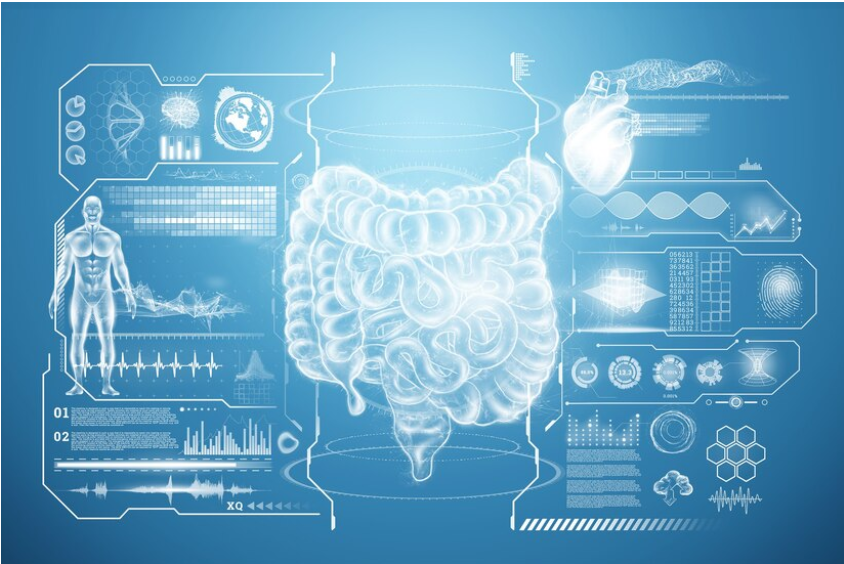

Metabolism not only depends on genetics, but is also strongly influenced by your lifestyle and daily habits. This means you can change and optimize your metabolism through simple changes in diet, physical activity and lifestyle. Let's find out more about how you can change your metabolism?
Metabolism is the basic process by which the body converts food into energy and substances needed to maintain the functioning of all cells and organs in the body. It includes the processes of food digestion, nutrient absorption, metabolism and energy generation. If this process does not work effectively, it can lead to health problems such as weight gain, lack of energy or problems related to body function.

Metabolism is the basic process by which the body converts food into energy for the body.
There are many factors that affect metabolism in the body. These include the following important factors:
Genetic factors: Genetics may also play a role in metabolism. Some people are genetically better at converting nutrients into energy.
You can change your metabolism through small changes in your daily life. Besides factors you cannot change such as genetic factors, age or gender. There are many factors that you can control to improve your metabolism.
Safe daily exercise helps indirectly increase your metabolism. Muscle cells burn energy at rest, helping you burn fat and build muscle. You can choose exercises that are suitable for you such as jogging, cycling, swimming or aerobics, any exercise will help you burn energy and increase metabolism. You can also choose exercises that help build muscle. In people with more muscle, the resting metabolic rate is much higher.

Daily exercise helps increase metabolism.
Researchers believe that eating at the right time will help reduce inflammation, improve circadian rhythm, increase stress tolerance, and balance intestinal microflora. Helps accelerate metabolism. Eating too many calories can cause weight gain. Eating too few calories can cause your metabolism to slow down. Make sure you are eating enough calories to maintain a healthy metabolism.
Protein requires more calories to consume than fats and carbohydrates. So you can replace some carbs with lean, protein-rich foods that can boost metabolism during meals. Protein can be supplemented from lean beef, fish, chicken, tofu, nuts, beans, eggs and low-fat dairy products.
Your body needs water to consume calories. If you are mildly dehydrated, your metabolism may slow down. In one study, adults who drank eight or more glasses of water per day burned more calories than those who drank four glasses. Additionally, snack on fresh fruits and vegetables, which contain natural juices, instead of cookies or chips.
Drinking green or oolong tea helps convert some of the fat stored in the body into free fat, which can increase fat burning when combined with exercise. Drinking coffee can increase the body's metabolism for a short period of time. Caffeine can help you feel less tired and even increase your endurance when exercising.
According to research from 2016, people who sleep less have slower metabolic rates. But when you increase your sleep time, your metabolic rate improves and returns to normal levels. The Centers for Disease Control and Prevention (CDC) recommends that adults 18-60 years old get at least 7 hours of sleep each night.
Stress causes the body to secrete more of the hormone cortisol than usual (cortisol is a hormone secreted in the adrenal gland). Studies show that, in people with eating disorders, levels of this hormone are higher than normal. Thus, stress indirectly affects metabolism through affecting eating habits.
Thyroid hormones help stimulate the secretion of substances that increase oxygen consumption, respiratory rate and body temperature. In people with hypothyroidism, the ability to burn energy is lower, leading to a slower metabolic rate in the body, increasing the risk of obesity. Therefore, when detected and treated early, it will help improve metabolism and reduce the risk of future complications.
Vitamins play an important role in metabolism. Results of a rodent experiment from 2018 showed that low consumption of B vitamins reduces the rate of fat metabolism. In addition, you can supplement NMN ( Nicotinamide Mononucleotide ), a form of vitamin B3, which is said to have the ability to enhance metabolism in the body. NMN has the ability to enhance the activity of sirtuins enzymes, an important group of enzymes in the energy conversion process and maintenance of cells.
There is some preliminary research showing that NMN may have health benefits and has the ability to boost metabolism. Some of the potential effects of NMN include enhancing muscle strength, improving cardiovascular function, increasing energy, and reducing the aging process .
However, it should be noted that research on the effects of NMN on humans is still limited and more research is needed to confirm and better understand the effects and impacts of NMN in the body.